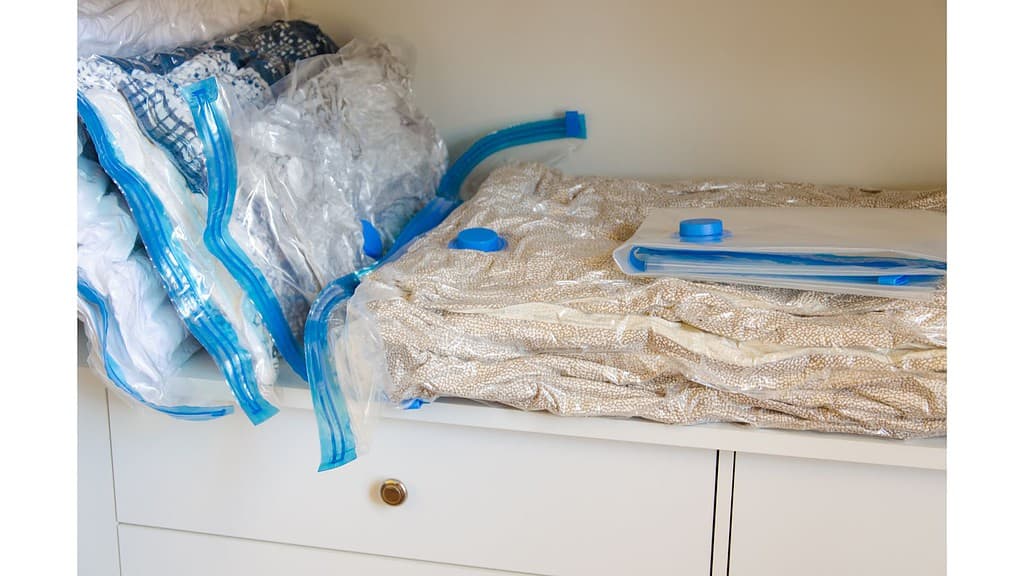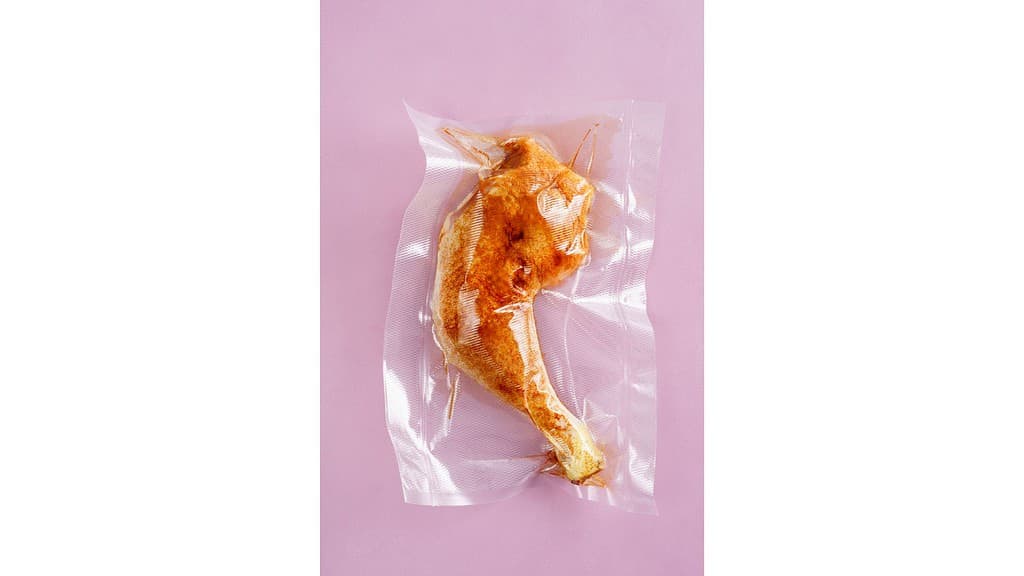Chicken is a staple for most of the greatest American dishes. It has been a fan favorite from ancient times and has continued to captivate people’s taste buds with its heavenly taste.
Restaurants and homes make it a staple and store them in bulk inside the fridge. One method to use when storing chicken is vacuum sealing.
While it’s a reliable storage method, knowing how long it can last in the fridge is vital to avoid contracting food-borne diseases.
If you’re wondering how long it takes, don’t fret, we’ll help you.
Well, vacuum-sealed chicken lasts for ten days to two weeks in the fridge. However, this duration may be affected by different factors, including temperature, contaminants, and moisture. When frozen, vacuum-sealed chicken can last for up to one year.
This article will look into how to freeze, storage tips, how to know if it’s spoiled and much more. Let’s get into it.

Can you Freeze Vacuum-Sealed Chicken?
Is it possible to freeze vacuum-sealed chicken? Yes, if you’ll not need it soon. If you freeze it within a considerable time frame, it will last longer after defrosting than if you stored it in its original packaging.
Because the sealing process helps to avoid freezer burn, the vacuum-sealed chicken lasts for 9 to 12 months in the freezer. However, thawing and enjoying it as soon as possible is recommended.
Storage Tips for a Vacuum-Sealed Chicken
For your vacuum-sealed chicken to last longer and avoid contamination, you should store it properly. Below are some tips for handling a vacuum-sealed chicken:
Store at the Proper Temperature
You should keep vacuum-sealed chicken at 40° F or lower. Bacterial growth accelerates when the temperature ranges between 40° F and 140° F.
As a result, it’s advised to store the vacuum-sealed chicken under low temperatures to keep it safe for as long as possible.
Place it on the Fridge’s Shelves.
When storing anything near the doors of a refrigerator, keep in mind that the temperature near the fridge door fluctuates a lot. So, instead of putting your vacuum-sealed chicken at the door, place it on one of the refrigerator shelves.

How to Know if a Vacuum-Sealed Chicken Is Going Bad
There are several ways to tell if a vacuum-sealed chicken has gone bad. Color and texture changes are common warning signs.
Raw chicken that has turned gray, brown, or any other color besides pink should be discarded. Mold may also be visible on the chicken.
The smell is another indicator. It’s important to note that vacuum-packed chicken could smell strange when opened because of the trapped odors inside.
So, let it sit for a few minutes before smelling it. If an unusual or sour odor remains, throw away the chicken. Also, any sliminess on the meat should alert you that it is unsafe to consume.
Can you Store Vacuum-sealed Chicken at Room Temperature?

You can’t store the vacuum-sealed chicken at room temperature. The vacuum should reduce bacterial spread, but keeping the chicken at temperatures above 40 degrees F will significantly accelerate it, and the chicken will still spoil quickly.
It’s never a good idea to leave chicken at room temperature for more than 2 hours. Whether the chicken is cooked or raw and whether vacuum packaging is used, exceeding 2 hours under room temperature will cause spoilage due to bacteria growth.
After cooking, let the chicken rest for a while so it can be cool. As soon as it cools, refrigerate it in the coldest part of the fridge, usually the back side of the compartment.
What makes Vacuum-sealed Chicken Last Longer?
Vacuum-sealed chicken lasts longer due to several factors:
Lack of Air
The first thing that makes chicken last longer when vacuum sealed is the lack of air. Air is the enemy of food, which also holds for chickens.
If you don’t use a vacuum sealer, air will be in your chicken pouch jar or a plastic zipper bag, making your chicken spoil faster.
When all the air from the chicken storage, it can affect the quality of the meat. It also causes bacteria growth when contaminated air contacts the meat.
Temperature
Vacuum-sealed chicken should be stored at 40 degrees F (4 degrees Celsius) and below to prevent bacteria growth. You should know that the higher the temperature, the shorter your food will last.
If you are vacuum sealing at home, you can use a food thermometer to determine the right temperature for your chicken.
If you’re using a commercial sealing machine, you need to consider the insulating properties of your packer and how it affects the final temperature.
For example, if you use a thick-walled bag with no insulation, your food will take longer to reach its target temperature.

No Contamination
The most important thing to remember when you vacuum seal meat is to ensure it’s dry. If you don’t dry them well enough, the moisture from the food will get trapped inside the bag and make your food spoil faster.
When you seal your food in a vacuum bag, no air comes into contact with the chicken. This means that the chicken is safe for consumption as no bacteria will grow.
The Shelf Life of a Vacuum-Sealed Chicken
It’s always important to know the shelf life of food to avoid consuming bad food. Let’s look at the shelf life of vacuum-sealed chicken when raw and when cooked.

Raw
Raw vacuum-sealed chicken lasts about 3-4 hours at room temperature and for 3-4 days in the refrigerator. When in a freezer, it can last for nine months to a year.
Always check your chicken for any signs of spoilage, as this time duration may be affected by other factors like humidity.
Cooked
Cooked chicken lasts only a day when stored at room temperature and lasts for 3 days in the fridge. If frozen, it will last for a month.
Frequently Asked Questions (FAQs)
Here are the frequently asked questions by people looking for information about vacuum seal chicken:
Can I Vacuum Seal Chicken by Myself?

Yes, you can vacuum-seal chicken by yourself. You just need to ensure you have the right equipment and techniques to do it right. The best way to learn how to vacuum seal chicken is by doing it yourself.
What are the Benefits of Vacuum-Sealing Chicken?

Vacuum sealing helps prevent bacteria growth on the chicken, prolonging its shelf life. It inhibits air which causes the thriving of bacteria. Also, it avoids dehydration, making the chicken fresher for a long.
How Long Does Thawed Vacuum-Sealed Chicken Last in the Fridge?
Thawed vacuum-sealed chicken lasts for 14 days in the refrigerator. But it deteriorates in taste and texture after two weeks in the refrigerator.







